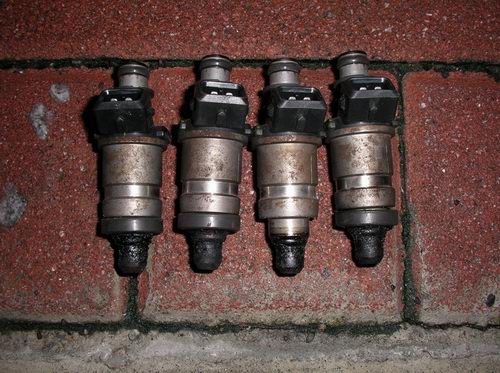How Does Carbon Deposition Impact Fuel Spray Nozzle?
Posted: 2015-05-15 04:11:01 Hits: 1896
The fuel spray nozzle in vehicles is a simple magnet valve. When solenoid coil is energized, it produces suction and sucks up the needle valve, opening office. Fuel sprays out at a high speed through circular clearance between axial needle on the top of needle valve and office, beneficial to sufficient burning. Previously, fuel spray nozzle used by diesel engine is mechanical control. Mechanical control fuel nozzle controls precise coupling parts to realize operation. The coupling part of fuel spray nozzle is one of three precise coupling parts in conventional fuel spray nozzle. The fuel spray nozzle on gasoline engine is a part of electronic control system, having taken place of carburetor.
As one of key components on electrical ejection engine, the performance of fuel spray nozzle has direct impact on performance of engine. Block on fuel spray nozzle has serious influences of performance of vehicles. The reason causing block is that carbon deposition inside deposits on fuel spray nozzle or the impurities in fuel blocks the passage way of fuel spray nozzle. When the vehicle has travelled for a while, fuel system forms sediments. The forming of sediments is directly related to fuel in vehicle. Firstly, due to colloids or impurities contained in fuel or mixed dusts during storage and transportation, sediments like oil sludge are formed in fuel tank or oil inlet. Secondly, labile elements in fuel react under temperature, forming colloids or resinous dopes. Those dopes accumulate in fuel spray nozzle or inlet valve. The sediments become into hard carbon deposition when being burned.
Moreover, because of traffic jam, vehicles are located at a situation of low speed or idling, aggravating forming and accumulation of sediments. Sediments in fuel system have a lot of harms. Sediments blocks up needle valve or valve port on fuel spray nozzle, influencing performance of precision couplings in electrical ejection system, resulting in power performance descending; sediments form carbon deposition in inlet valve, resulting in lax off, causing engine unstable idling, fuel consumption rising and exhaust emission deteriorating; sediments form hard carbon deposition on top of piston or cover of cylinder. For high thermal capacity and poor thermal conductivity of carbon deposition, it easily causes engine knocking. It also reduces service life of three-way catalyst.




